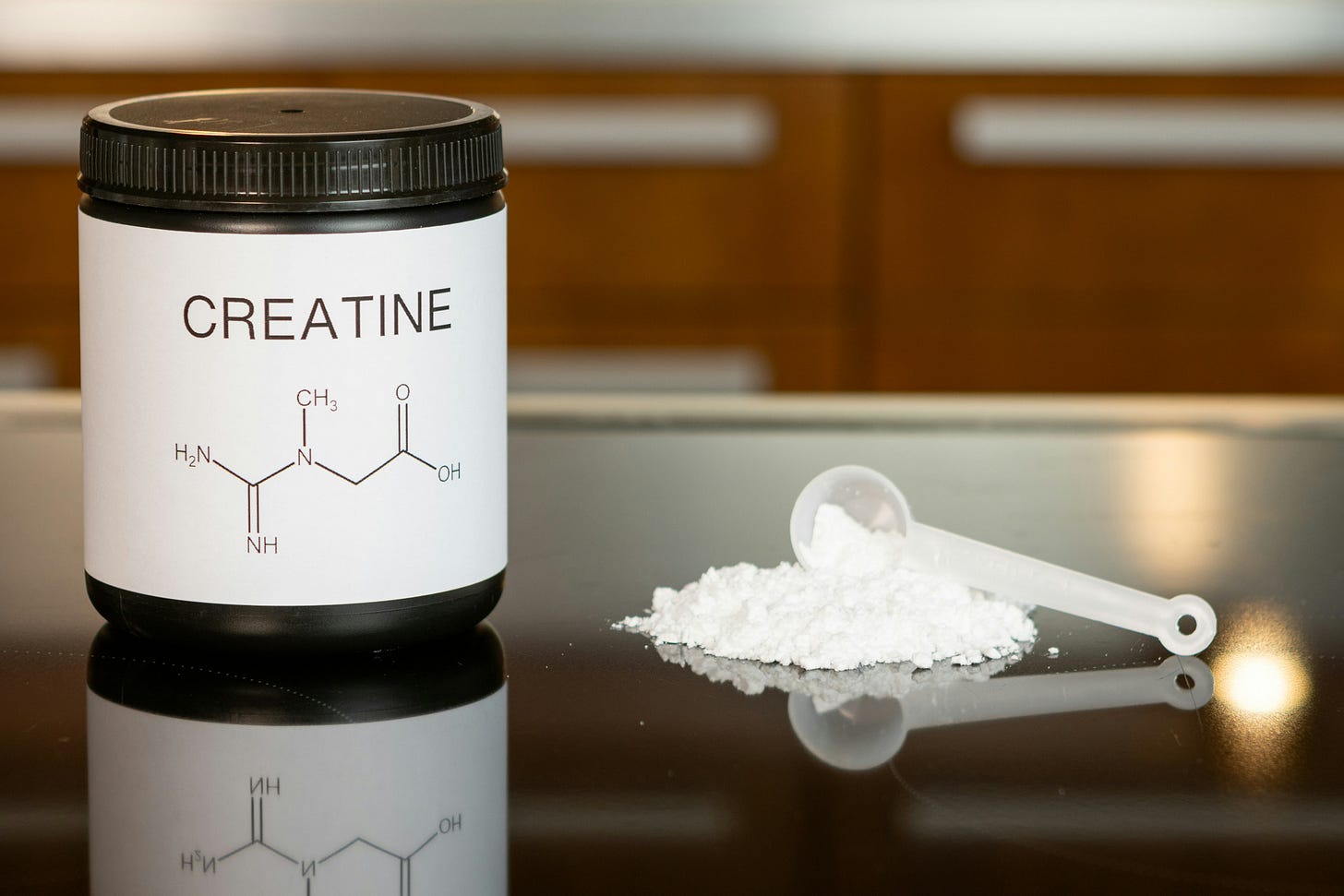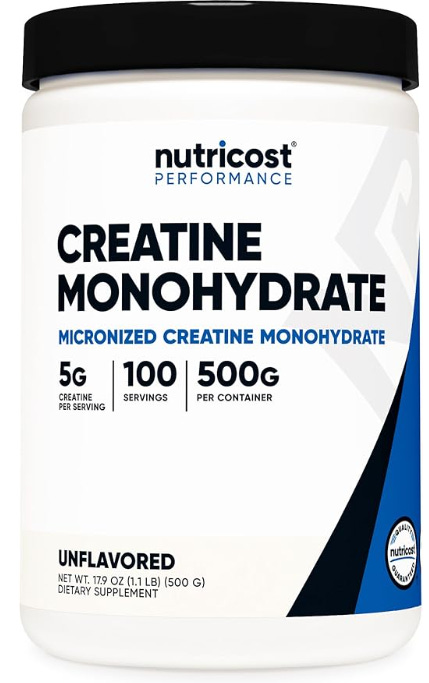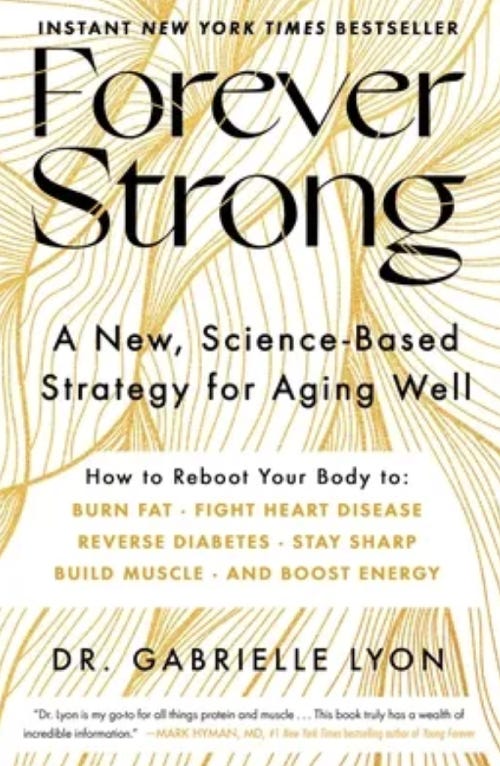Important New Information on Creatine
Whats new with the world's greatest supplement
Creatine is widely accepted as the safest supplement that works. I have personally been using it for at least the past decade. Due to its inflammation-reducing and performance-enhancing properties, creatine is beneficial for athletes participating in resistance, explosive, sprinting, and jumping exercises, as well as for endurance and aerobic sports.

I recently listened to the Dr. Garrielle Lyon podcast featuring Darren Candown, Ph.D., professor, and director of the Aging Muscle and Bone Health Laboratory at the University of Regina. I learned several things that I did not know regarding creatine, including:
Synergistic Benefits of Combining Creatine with Protein: Combining creatine with protein, such as whey-based protein like milk or dairy, has increased muscle mass and strength more than taking creatine or protein alone. The synergistic effect of creatine and protein stimulates insulin, leading to various health benefits from protein consumption. This combination is particularly beneficial for muscle growth in both younger individuals and older adults.
Larger Doses May Be Beneficial: While 3-5 grams is sufficient for muscle benefits, higher doses could be beneficial for brain and bone health, with studies showing accumulation of creatine in the brain with doses up to 30 grams. Individuals with high metabolic stress or sleep deprivation might benefit more from creatine supplementation, especially in cognitive function and during long-haul flights. Research is also exploring the potential benefits of creatine in Alzheimer's disease.
Dosage Size, Frequency and Timing: Taking a smaller dose of creatine may increase absorption, especially for older adults. Breaking down the dosage into smaller amounts with food can reduce gastrointestinal irritation and water retention. The timing of creatine intake seems irrelevant, but consuming it close to exercise can enhance its delivery to muscle tissues and absorption efficiency. It is recommended to take creatine before, during, or after exercise to leverage enhanced blood flow kinetics for improved muscle uptake.
Creatine Differences in Males and Females: Females typically have 70 to 80% lower endogenous creatine stores compared to males, which may be due to differences in dietary creatine intake or uptake ability. Research indicates that females, especially vegans and vegetarians, show a significant response to creatine supplementation, with studies showing nearly unbelievable muscle response in females compared to males.
Debunking Creatine Myths.
The doctor discussed the myriad of Creatine myths, including:
There is a common myth associating creatine consumption with causing baldness, alongside the belief that an increase in DHT levels due to creatine intake results in hair loss or thinning. However, research has shown that although creatine can elevate DHT levels within normal ranges, it has not been proven to cause baldness.
Creatine causes issues with kidney and liver function. In fact, there are no adverse effects. This applies to high doses, moderate doses, low dosescompared to placebo in a variety of rndimized control trials.
What Form of Creatine Should I Take?
Creatine monohydrate is considered the best form of creatine due to its similarity to what the liver and brain produce, making it safe and effective. While various market forms of creatine are available, research indicates that monohydrate is the safest and most efficient form, with nearly 100% bioavailability.
How Does Creatine Work?
Creatine plays a key role in maintaining cells' energy currency by supporting the production of adenosine triphosphate (ATP). It bypasses the stomach's acidic environment, entering the bloodstream intact. By enhancing energy levels, creatine allows individuals to sustain higher-intensity activities, making it popular among athletes. Recent research suggests that creatine not only boosts energy but also offers additional benefits.
What I Am Changing After Listening To This Podcast
Increased my daily dose to 10g. When feasible, I will divide it into separate 5g servings.
When stressed, jet-lagged, or facing a heavy cognitive load, I will increase my daily dose to 15g.
I will combine creatine with protein (I previously had it alone in the morning).
Will time taking creatine near exercise.
I use Nutricost Creatine Monohydrate and like it. It mixes well and has a good price.
Dr. Gabrielle Lyon is one of the top researchers in performance and longevity. I highly recommend her latest book, Forever Strong, which offers readers a roadmap to enhancing physical performance, preventing age-related decline, and living with vitality at any stage of life.






